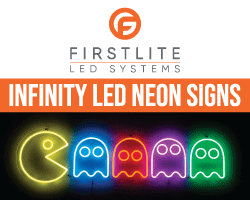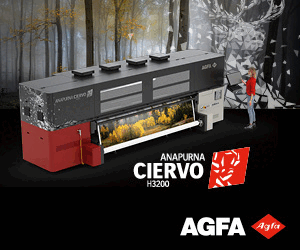
The contract will see Reconomy’s dedicated print recycling team manage a variety of waste types including fibre-based display boards, which will be repulped at a paper mill, and rigid PVC graphics, which will be remanufactured in the UK into new facia boards. Onsite bailing of GES’s general waste, which contains a lot of very light composite board, will significantly reduce the associated transport costs and emissions.
This improved efficiency will in turn allow more recyclable material to be recovered at local recycling facilities. Meanwhile, sustainable channels for other hard to manage wastes such as polyester fabrics from lightbox coverings are continually being trialled and implemented.
A primary focus of the partnership has been to achieve the recently launched FESPA UK / Reconomy accreditation. This also sees GES become members of FESPA UK, the leading graphics, signage, and print association and demonstrates that they are taking positive action to become more sustainable with their waste.
Commenting on the company’s appointment Reconomy’s Director, Jon Hutton, said:
“We’re excited to be supporting GES in their commitment to driving sustainability within the events industry and desire to be a leader for positive change. We will work to continually optimise the environmental and commercial value of these materials diverting them from landfill and ensuing that where possible we adopt circular solutions that will see them being recycled and reused.”
Jason Holt, Production Director, Graphics at GES EMEA, said:
“It’s important to us that we pick quality partners that can help us achieve our ambition to continue to reduce waste across our business. This is a real statement of intent for us. It’s not just about having circular recycling methods in place, Reconomy have been invaluable in helping us reduce waste, working in partnership with our own customers, and sharing successes across the industry.”
Waste generated by the UK events industry presents a number of challenges including its short ‘lifespan’, the need for a quick turnaround between events and the fact that it is generally event specific making direct reuse hard to achieve. The large number of subcontractors and agency staff employed during build and breakdown of events also presents challenges in terms of communication, education, and the onsite segregation of recyclable waste.


















